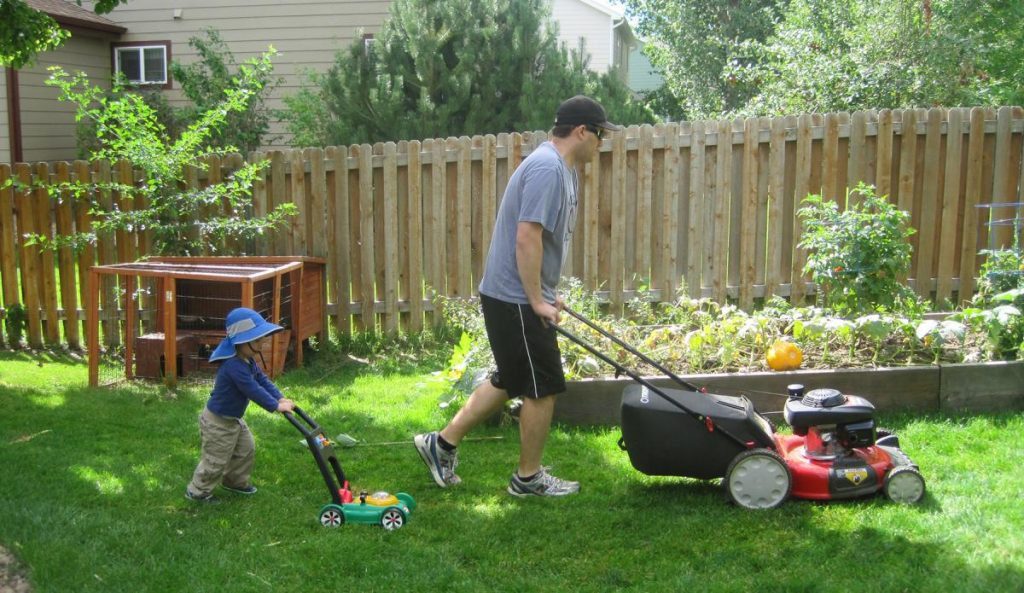The willful child can be a handful, right? Sometimes I have to take a deep breath and remind myself that it’s wonderful that my toddler has “spirit.” Of course we don’t want our children to be passive, timid, or without at least some spark of independence. But yes, the “spirited” two-year-old can wear even a very patient parent or teacher down after awhile. I’ve been practicing a strategy for working with the feistier children in my home and preschool program that I’m hoping to share with other nurturers. You’re probably doing it already, but this is a reminder of how valuable including children in work can be. Instead of viewing willfulness and other challenging behaviors as a problem, we can direct a child’s energy into real, productive work for a positive sense of self and a foundation of respect.
Teaching in a Waldorf kindergarten for several years, togther with going through the Lifeways program among other educational ventures, have done a pretty good job of preparing me for motherhood. So now, in the new Lifeways Program I started in my home with my own two children and a dear friend and fellow Lifeways graduate, I have a few tricks up my sleeve to channel the will and other behaviors of our children (including a gang of two-year-olds!) into good work. The same strategies are magic for both the anxious or fearful child and those rowdy little ones who need to let off some steam productively.
Real, physical work does wonders for the willful, aggressive or anxious child. If you’re anything like me, this includes the projects you put off doing because they’re hard and tedious, like digging up the garden, turning or hauling compost, loading, carrying and dumping dirt, rocks, water, sand…. Doing them with children is much more fun, and they really get the job done.
I had two tons of river rocks delivered to my driveway last week, and the children helped load them in a wheelbarrow and haul them to the play-yard. This was many, many loads of rocks! They were sweaty and pink-cheeked, but their determination and joy as they worked was wonderful. When we finished, they were hungry, tired and very satisfied with their strength and drive.
If it’s a day when there isn’t a major project in the works, simple tasks are great as well, as long as they have lots of gesture, and ideally include tools. Sweeping, sanding, scrubbing, grinding grain, or kneading dough are all great jobs for these children. I’m definitely investing in a bunch of little rakes this year so we can all rake leaves. You won’t have to convince your little ones to help, they WANT to do real work.
When we do our work with children the results aren’t always up to the standards we would have on our own, but over time I’ve truly come to value the process over the product. Besides, if I didn’t do these jobs with my children, when would I do them? I want my children to know that the effort they put into their work is more important to me than the results. It will be the same story some day when they bring home report cards. By helping them channel their energy, frustration, or anxiety productively, we’re giving our children tools to use throughout their lives. With these strategies our children will be better able to self-regulate and to become more motivated students and more confident adults.
So go for it! Dig into those big, messy projects and get creative. By giving the children real, challenging work we are showing them respect. It is a gift I see reciprocated immediately, and I believe it will serve them throughout their lives.
Rachel Baier
Cottontail Nursery School
